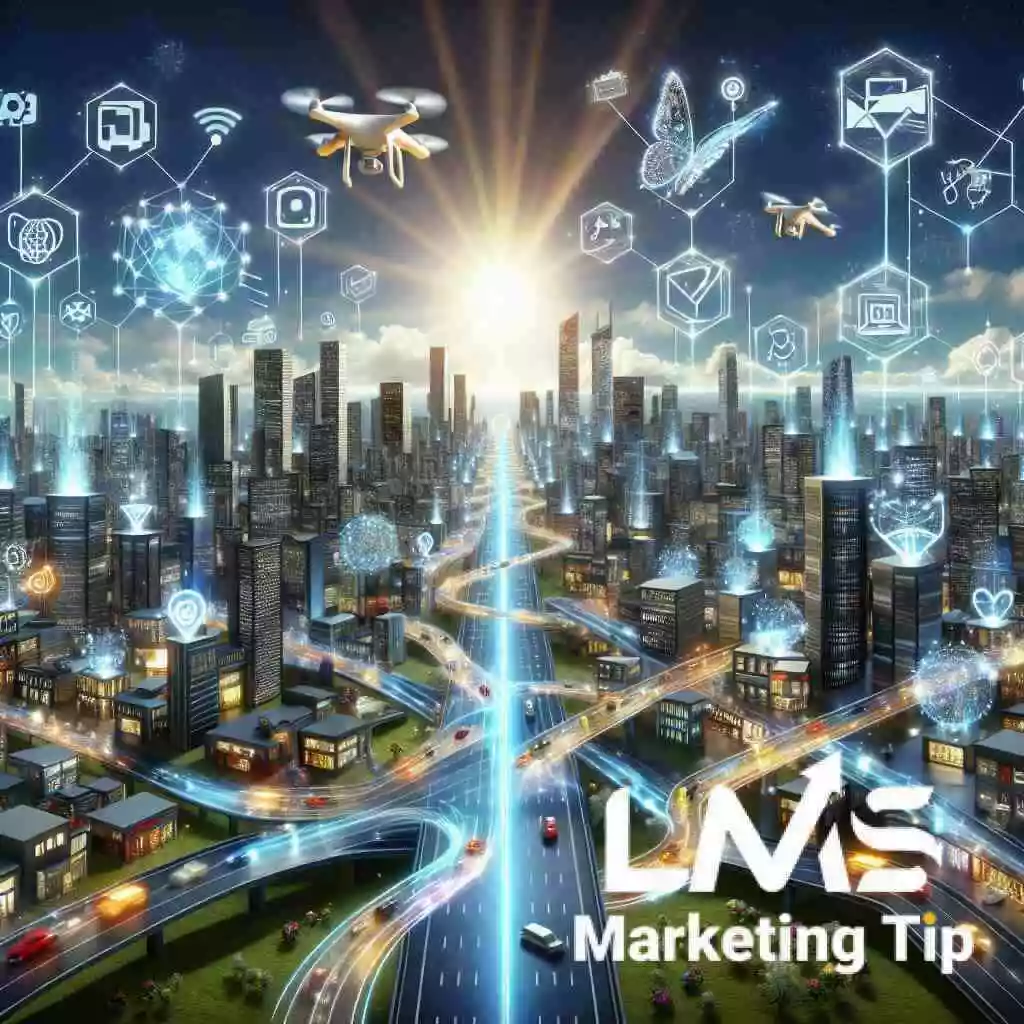
The Foundation of Real Estate Marketing
Understanding SEO and SEM
The digital age has revolutionized the way real estate marketing is conducted. At the core of this digital transformation are two fundamental strategies: Search Engine Optimization (SEO) and Search Engine Marketing (SEM). SEO focuses on enhancing website visibility in organic search results through various techniques such as keyword research, content creation, and link building. On the other hand, SEM encompasses paid strategies, including Pay-Per-Click (PPC) advertising, to boost website traffic and visibility quickly. Both methods aim to increase online presence but differ in approach, timeline, and investment.
Understanding the distinction between SEO and SEM is crucial for realtors aiming to maximize their digital marketing efforts. SEO is a long-term investment in your digital footprint, steadily growing your online presence. SEM provides immediate visibility and leads generation but requires a consistent budget to maintain its effectiveness. Together, they form a comprehensive digital marketing strategy capable of delivering sustainable growth and immediate results.
Importance of Digital Marketing in Real Estate
In today’s competitive real estate market, digital marketing is not just an advantage; it is a necessity. The majority of home buyers start their search online, making it imperative for real estate professionals to have a solid online presence. Digital marketing, encompassing both SEO and SEM, allows realtors to reach their target audience more effectively than traditional marketing methods.
Investing in digital marketing helps real estate professionals increase their brand awareness, generate quality leads, and ultimately close more deals. It provides measurable results, enabling realtors to understand their audience better and tailor their marketing strategies accordingly. With the right digital marketing plan, realtors can achieve a significant return on investment, making it a crucial component of modern real estate marketing.
Leveraging Marketing Tips for Effective Marketing Strategies
Marketing Tip, powered by Lead Marketing Strategies, offers a treasure trove of insights and tactics for real estate professionals looking to harness the power of digital marketing. From in-depth guides on SEO and SEM to the latest trends in digital advertising, Marketing Tip provides real estate marketers with the resources they need to enhance their online presence.
By applying the marketing tips and strategies recommended in Marketing Tip, realtors can optimize their websites and listings for search engines, engage their target audience on social media platforms, and execute effective advertising campaigns. The blog not only covers essential digital marketing techniques but also emphasizes the importance of web design, content marketing, and brand building. Leveraging these practical strategies can lead to measurable results, including increased traffic, better lead generation, and improved conversion rates, positioning real estate businesses for success in the dynamic online marketplace.
Breaking Down SEO for Real Estate
What is Real Estate SEO
Real Estate SEO refers to the strategic process of improving a real estate website’s visibility in search engine results pages (SERPs) to attract more organic traffic. This critical component of digital marketing for real estate involves optimizing various elements of a website, including its content, meta tags, images, and structure, to align with what search engines, such as Google, deem valuable.
For realtors, effective SEO practices ensure that when potential buyers or sellers use search engines to find real estate services, their website appears among the top results. To achieve this, real estate websites must be carefully tailored to address the unique needs and behaviors of their target audience, integrating relevant keywords, providing valuable information, and showcasing listings in the most accessible way possible.
Keyword Research In Real Motor Estate Marketing
Keyword research is the cornerstone of any successful real estate SEO strategy. It involves identifying the terms and phrases potential clients commonly use when searching for real estate services online. This research plays a pivotal role in content creation, enabling realtors to craft their messages in a way that resonates with their target audience.
By leveraging tools like Google Keyword Planner or SEMrush, real estate marketers can uncover high-volume, low-competition keywords that effectively capture their audience’s search intent. Integrating these keywords into website content, blog posts, and property listings enhances the site’s relevance and visibility in search results, driving more targeted traffic to the site.
Content Marketing for Real Estate
Content marketing in real estate revolves around creating and sharing valuable content tailored to potential clients’ needs and interests. This can include blog posts, market analyses, eBooks, infographics, and video tours that provide insights into the buying or selling process, highlight neighborhood attractions, or offer home improvement tips.
By consistently delivering high-quality, informative content, real estate professionals establish themselves as authoritative and trustworthy figures in their field. This not only helps improve the website’s SEO rankings by keeping users engaged and encouraging them to share content but also fosters relationships with potential clients, enhancing lead-generation efforts.
Optimizing Real Estate Listings
Optimizing real estate listings for SEO is about making sure each listing on a website is informative and search engine friendly. This involves including relevant keywords in the listing titles, descriptions, and tags and ensuring high-quality, keyword-tagged images are present.
Moreover, an effective listing optimization strategy requires a mobile-responsive design, fast loading times, and the integration of social sharing buttons. These factors contribute to an improved user experience, encouraging visitors to engage with the listings and share them on social media platforms, further amplifying the site’s reach and visibility.
Local SEO for Real Estate
Local SEO is essential for real estate professionals as most real estate searches are localized. This strategy focuses on optimizing a website to appear in local search results, particularly in Google’s “Local Pack,” which displays a list of nearby businesses relevant to the search query. To excel in local SEO, real estate websites should ensure their name, address, and phone number (NAP) information is consistent across all online platforms, claim their Google My Business listing, and gather positive reviews from satisfied clients.
Local SEO also involves creating content and listings that highlight local keywords and geographic locations, making it easier for search engines to understand the business’s location and relevance to specific areas. Local SEO for Real Estate This targeted approach enables realtors to reach potential clients more effectively within their service areas, driving more qualified leads and conversions.
Backlink Strategies for Real Estate
Backlink strategies for real estate involve acquiring links from other reputable websites and returning them to your own. These backlinks signal to search engines that others value your content, which can significantly boost your site’s credibility and search engine rankings. Real estate professionals can build backlinks by guest posting on industry-related websites, participating in local community events and having their involvement covered on news sites, or creating valuable resources that others want to link to.
Networking with local businesses, real estate directories, and influencers can also provide opportunities to earn quality backlinks. A robust backlink profile not only enhances a website’s SEO performance but also drives referral traffic, contributing to a comprehensive digital marketing strategy for real estate success.
Deciphering SEM Tactics for Real Estate
What is Search Engine Marketing for Real Estate
Search Engine Marketing (SEM) for real estate encompasses a spectrum of paid advertising strategies aimed at enhancing a real estate agent’s visibility online. These tactics include, but are not limited to, pay-per-click (PPC) campaigns, display ads, and remarketing. Unlike SEO, which focuses on organic growth and demands time to bear fruit, SEM delivers immediate visibility in search engine results, making it a powerful tool for realtors who want to generate leads quickly. With SEM, real estate professionals can target specific demographics, locations, and interests, dramatically increasing the chance of reaching potential clients at the moment they are ready to engage in buying or selling property. Understanding the essentials of Search Engine Marketing is crucial for realtors looking to make a significant impact in the competitive real estate marketplace.
Google Ads for Realtors
Google Ads is a pivotal component of SEM for realtors, providing a platform to create targeted advertising campaigns that appear in Google’s search results and on websites within the Google Display Network. Google Ads allows real estate professionals to pinpoint their advertising efforts with precision, using keywords and location targeting to connect with potential buyers and sellers in specific regions or who are showing interest in actual estate-related queries. By employing effective PPC campaigns for real estate near you, realtors can significantly boost their chances of being noticed by the right audience, thereby increasing clicks to their website and, ultimately, conversions into leads or sales.
Pay-Per-Click in Real Estate
Pay-per-click (PPC) advertising in real estate is a model where advertisers pay a fee each time one of their online ads is clicked. This model is highly effective in real estate marketing as it ensures that marketing funds are spent efficiently, targeting only those most likely to be interested in the offered properties or services. PPC allows real estate marketers to gain a better understanding of consumer behavior by analyzing which ads drive traffic and what kind of ROI those ads generate. Real estate professionals can leverage Pay-Per-Click strategy understanding to refine their advertising efforts, focusing on the most profitable avenues and seeing immediate effects on web traffic and lead generation.
Conversion Rate Optimization for Realtors
Conversion Rate Optimization (CRO) for realtors is the process of enhancing a website or landing page to increase the percentage of visitors who take a desired action, such as filling out a contact form or making a phone call. In the context of real estate SEM, CRO involves analyzing performance data to understand user behavior and then creating targeted adjustments to ad copy, design elements, and calls-to-action (CTAs) to improve performance. By focusing on conversion rate optimization, realtors can not only boost the effectiveness of their paid campaigns but also ensure that their marketing budget is being utilized in the most efficient manner possible to generate high-quality leads.
Advertising Strategies in Real Estate
Developing effective advertising strategies in real estate requires a deep understanding of the market, the target audience, and the channels where potential clients are most active. Integrating a mix of SEM tactics, including targeted display ads, retargeting campaigns, and sponsored content on social media platforms, can create a comprehensive approach that engages potential buyers and sellers throughout the buyer’s journey. By customizing messaging and leveraging data-driven insights, real estate professionals can craft compelling campaigns that resonate with their audience, drive traffic, and, ultimately, convert interest into action. Real estate marketing excellence in New York and beyond relies on the ability to adapt and innovate in advertising strategies, staying ahead of the curve in a rapidly evolving digital landscape. Real Estate Marketing Excellence in New York demonstrates how targeted and creative approaches can lead to significant improvements in visibility, engagement, and sales results.
Comparing SEO vs SEM in Real Estate
Differences Between SEO and SEM
The digital realm offers two primary lanes for bolstering a real estate professional’s visibility online: Search Engine Optimization (SEO) and Search Performance Marketing (SEM). The main divergence between SEO and SEM lies in their approach and the immediacy of results. SEO is an organic approach focusing on enhancing a website’s rankings in search results through content optimization, keyword integration, and building site authority. This method is cost-effective over time but requires patience for significant results. On the other hand, SEM zeroes in on paid tactics, like PPC (Pay-Per-Click) advertising, delivering immediate visibility and targeted traffic, albeit at a cost for every click received from potential real estate clients. While SEO Recommendations for Realtors aim to build a durable online presence, SEM strategies provide a rapid push in visibility to capture leads in real time.
When to Use SEO over SEM
Deciding between SEO and SEM hinges on specific goals, budget considerations, and timelines. What Does Effective PPC Mean Near Me in 2024? SEO is ideal for real estate professionals aiming for long-term growth and sustainability. It’s especially effective for establishing credibility and authority in the real estate market with content that attracts organic traffic over time. For those with tighter budgets willing to invest in gradual growth, focusing on SEO can yield rich dividends, such as consistent lead generation without the ongoing costs associated with SEM. Real estate marketers should lean towards SEO when looking to build a lasting foundation for their online presence.
Combining SEO and SEM for Maximum Impact
For real estate professionals, the collaboration of SEO and SEM can be compelling. Combining SEO and SEM for Maximum Impact Integrating both strategies allows for both immediate and sustained visibility in search engines. Starting with SEM can provide a quick influx of traffic and leads, setting the stage for long-term brand building and organic reach through SEO. As the real estate website begins to gain traction from SEO efforts, the reliance on paid SEM tactics can decrease, leading to a more cost-effective marketing mix over time. This combined approach encourages a holistic online marketing strategy, leveraging the quick wins of SEM and the enduring benefits of SEO to dominate the competitive real estate landscape.
Measuring Success in SEO and SEM
The effectiveness of SEO and SEM can be gauged through a variety of metrics, each offering insights into how well real estate marketing efforts are performing. For SEO, key performance indicators (KPIs) include organic traffic volume, rankings for targeted keywords, and organic lead generation rates. These metrics reflect the long-term value and brand authority built through SEO efforts. SEM success, on the other hand, is often measured through click-through rates (CTRs), conversion rates from paid ads, and the cost per acquisition (CPA) of leads or sales. By closely monitoring these metrics, real estate marketers can fine-tune their strategies for optimal performance, ensuring that every dollar spent maximizes return on investment and contributes to their overall marketing goals. Integrating both SEO and SEM metrics provides a comprehensive view of digital marketing effectiveness, enabling real estate professionals to make data-driven decisions for continuous improvement and growth.
Enhancing Online Presence and Lead Generation for Realtors
Effective Online Marketing in Real Estate
In the ever-evolving landscape of real estate marketing, enhancing online presence and optimizing for lead generation stand as critical pillars for success. Effective online marketing in real estate requires a multifaceted approach, incorporating both SEO and SEM strategies to ensure a broad yet targeted reach. By optimizing real estate websites for SEO, realtors can improve their organic search visibility, making it easier for potential buyers and sellers to find them. On the other hand, a well-structured SEM campaign can drive immediate traffic through targeted ads, directly influencing lead generation rates. Combining these strategies effectively requires a deep understanding of the real estate market, the target audience’s behavior, and the digital landscape’s current trends. With an agile and responsive online marketing strategy, realtors can adapt to market changes, ensuring their online presence is continually optimized for maximum visibility and lead capture. Top Social Media Optimization Tips for 2024
Building Brand Awareness Through Social Media Marketing
Social media marketing has become an indispensable tool for building brand awareness in the real estate sector. Platforms like Facebook, Instagram, and LinkedIn provide realtors with unparalleled opportunities to connect with their target audience on a more personal and engaging level. By sharing valuable content, including market insights, property listings, and home improvement tips, realtors can establish themselves as authoritative sources in the real estate industry. Moreover, social media platforms offer advanced targeting options, allowing realtors to reach specific demographic, geographic, and interest-based segments with their messaging. Engaging in social media marketing not only enhances brand awareness but also drives traffic to the realtor’s website, contributing to both SEO and SEM objectives. To fully leverage social media marketing, realtors should focus on consistency, quality of content, and active engagement with their audience, fostering a community around their brand.
Creating a Comprehensive Digital Marketing Plan
Developing a comprehensive digital marketing plan is crucial for realtors looking to enhance their online presence and lead generation capabilities. This plan should encompass a wide range of strategies, including SEO, SEM, social media marketing, content marketing, and email marketing, tailored to the unique needs and goals of the real estate business. A strategic digital marketing plan starts with setting clear objectives, identifying the target audience, and understanding the competitive landscape. By employing the best digital marketing practices for the real estate sector, realtors can ensure their marketing efforts are cohesive, efficient, and practical, driving toward their desired outcomes. Regularly analyzing performance metrics and adapting the strategy accordingly is vital to staying ahead in the dynamic real estate market. With a well-executed digital marketing plan, realtors can increase their visibility, engage with potential clients more effectively, and, ultimately, drive more sales.
Utilizing Lead Marketing Strategies for Measurable Results
Lead generation remains one of the most critical metrics for real estate marketing success. By utilizing proven lead marketing strategies, realtors can significantly enhance their lead generation efforts, yielding measurable and impactful results. These strategies include optimizing landing pages for conversion, implementing lead capture forms across the website, and running targeted advertising campaigns designed to attract high-quality leads. Additionally, content marketing plays a crucial role in lead generation by providing value to potential clients, thereby encouraging them to engage further with the real estate brand. Lead generation insights for Long Island realtors highlight the importance of understanding local market trends and tailoring lead marketing tactics accordingly. By focusing on data-driven strategies and continuously testing and refining their approach, realtors can maximize their lead generation potential, driving growth and success in a competitive real estate market.
Conclusion: Navigating the Future of Real Estate Marketing
Staying Ahead with Marketing Tips and Trends
The landscape of real estate marketing is ever-evolving, driven by technological advancements and changing consumer behaviors. To stay competitive and relevant, realtors must keep a close eye on the latest marketing tips and trends. Embracing digital transformation and adapting to the latest in SEO and SEM is crucial for future-proofing your marketing strategy. Following a reputable source like Marketing Tip can provide real estate professionals with up-to-date information on How to Master Real Estate Marketing in 2024 and beyond, ensuring they are always ahead of the curve. Staying informed about new tools, platforms, and strategies is essential for leveraging the full potential of digital marketing to reach and engage target audiences effectively.
Choosing the Right Marketing Agency
The success of your real estate digital marketing efforts can hinge on the expertise and experience of the marketing agency you partner with. Choosing the right marketing agency involves evaluating their proficiency in both SEO and SEM, understanding their track record with real estate clients, and assessing their ability to deliver measurable results. The ideal agency should offer comprehensive Real Estate Marketing Solutions tailored to your specific goals and market dynamics. They should act as an extension of your team, providing insights, strategies, and execution that align with your objectives. Working with an agency that stays at the forefront of marketing innovations ensures that your real estate business can navigate digital challenges and capitalize on opportunities effectively.
The Integral Role of SEO and SEM in Growing Your Real Estate Business
In the digital age, SEO and SEM play pivotal roles in the growth and sustainability of real estate businesses. They are not just marketing tactics; they are indispensable components of a holistic digital marketing strategy designed to increase visibility, attract leads, and drive conversions. While SEO builds a strong foundation for long-term organic growth, SEM offers the immediate visibility needed to generate leads in the short term. The integration of SEO and SEM provides an optimal mix of strategies to target potential clients throughout their buying journey. As the landscape continues to shift towards more digital interactions, mastering both SEO and SEM is more critical than ever for real estate professionals looking to expand their reach and impact.
As the real estate market grows more competitive, staying informed and leveraging effective digital marketing strategies will become increasingly critical. By keeping up with marketing trends, choosing the right partners, and effectively utilizing SEO and SEM, real estate professionals can position themselves for success now and in the future. The digital marketing realm offers limitless opportunities for growth, brand building, and lead generation – making it an exciting time for real estate marketers willing to embrace innovation and pursue excellence in their online marketing endeavors.
Frequently Asked Questions
Question: How can realtors effectively integrate both SEO and SEM strategies for their digital marketing plan?
Answer: Realtors can effectively integrate SEO and SEM by first utilizing SEM’s immediate visibility to boost traffic and leads while simultaneously building a solid SEO foundation for sustainable, long-term growth. By targeting specific keywords and demographics with SEM, realtors can quickly connect with their audience. At the same time, a strong SEO strategy focusing on content marketing, local SEO, and optimizing real estate listings will gradually improve organic traffic and credibility. Marketing Tip suggests starting with SEM to get quick results and gradually investing in SEO practices to decrease dependency on paid advertisements. This balanced approach ensures both short-term success and long-term growth in the highly competitive real estate market.
Question: When comparing SEO vs SEM in real estate, which should I prioritize for my real estate business on a limited budget?
Answer: If you’re working with a limited budget, prioritizing SEO for your real estate marketing is advisable. SEO is a cost-effective strategy that builds a strong online presence over time, attracting quality organic traffic to your real estate website without the ongoing costs associated with SEM. By focusing on creating valuable content, conducting keyword research in real estate marketing, and enhancing your website’s SEO, you can establish credibility and draw potential clients to your services. Marketing Tip can guide you through optimizing your online strategies, emphasizing SEO’s long-term benefits to real estate professionals seeking sustainable growth.
Question: What are the critical components of an effective online marketing strategy in real estate, according to Marketing Tip?
Answer: According to Marketing Tip, critical components of an effective online marketing strategy in real estate include a well-optimized website for SEO, a strong SEM campaign for quick visibility, consistent content marketing to establish authority, social media marketing for broader engagement, and targeted advertising strategies to connect with specific audiences. Optimizing real estate listings for search engines and focusing on local SEO is also crucial for capturing the local market. Additionally, conversion rate optimization ensures your website and campaigns efficiently turn visitors into leads. Marketing Tip emphasizes the importance of a comprehensive approach, integrating these components to enhance online presence, generate leads, and drive sales.
Question: How does Marketing Tip recommend using SEM tactics specifically for real estate to get immediate leads?
Answer: Marketing Tip recommends utilizing SEM tactics such as Google Ads for realtors and targeted pay-per-click (PPC) campaigns to generate immediate leads. By carefully selecting keywords related to real estate services and targeting ads to specific demographics and geographic locations, real estate professionals can capture the attention of potential buyers and sellers right at the moment they’re ready to make decisions. With effective SEM strategies, including conversion rate optimization and engaging ad copy, realtors can maximize their ROI from paid search campaigns. Marketing Tip provides insights on leveraging these tactics for immediate visibility and lead generation, ensuring realtors can quickly connect with their target audience.
Question: What advantages does Marketing Tip offer to realtors looking to master both real estate SEO and SEM?
Answer: Marketing Tip offers realtors comprehensive guidance and strategies to master both real estate SEO and SEM, ensuring a robust online marketing presence. With in-depth knowledge of digital marketing trends and practical techniques, Marketing Tip helps realtors optimize their websites, create compelling content, and execute targeted advertising campaigns. Our approach combines SEO expertise to build long-lasting organic growth with SEM tactics for immediate results, specifically tailored to the real estate market. Additionally, Marketing Tip’s focus on measurable results, keyword research, and conversion optimization provides realtors with the tools to refine their marketing efforts continuously. By partnering with Marketing Tip, realtors can benefit from customized marketing solutions designed to enhance their online presence, generate leads, and drive sales in a competitive landscape.











